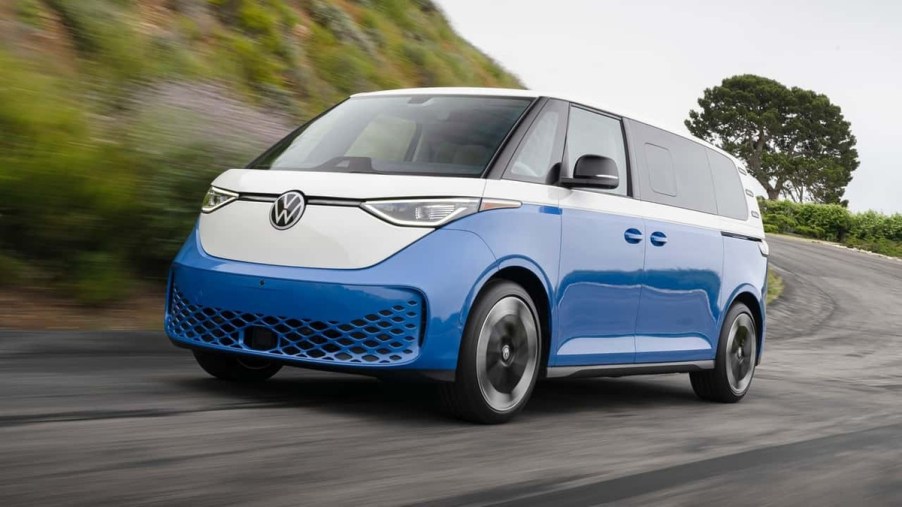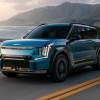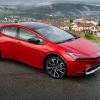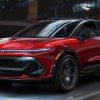
Volkswagen’s Heavy Focus on EVs Is Hurting Its Relevance
The automotive industry loves to talk about an electrified future of transportation, and Volkswagen is one brand that’s taking this narrative to heart. Ever since the infamous “dieselgate” scandal that began in 2015, in which VW got caught cheating on emissions testing for diesel engines, the German automaker has pivoted toward green energy. Naturally, a big part of that pivot has been to electric vehicles.
So, how is that going for Volkswagen?
Volkswagen’s vehicle catalog is a little barren
Volkswagen has joined a growing chorus of car brands with more SUVs in its lineup than cars. The only cars are the Jetta compact sedan, Golf compact hatchback (only available in the sporty GTI and R variants), and the all-new ID.7 EV.
As for SUVs, there’s the subcompact Taos, compact Tiguan, and midsize Atlas and Atlas CrossSport. Also, there’s the ID.4 eclectic compact SUV.
That leaves a few notable absences. For example, there are no hybrids in Volkswagen’s American lineup. No conventional hybrids nor plug-in hybrids. The brand skipped right to BEVs with nothing in between. It’s worth noting that the Golf served for many years as an affordable, entry-level, compact hatchback, but the fact that the GTI is now the base trim makes it less affordable.
Volkswagen’s EV problem(s)
The Volkswagen ID.4 is one of the more budget-friendly options in electric SUVs since many come from luxury brands. It’s up there with the Hyundai Ioniq 5 and Ford Mustang Mach-E as one of the more appealing electric crossover SUVs that a wide range of drivers can afford.
There’s also a smaller ID.3 electric SUV available in other markets but not in the U.S. According to data on GoodCarBadCar, sales of the ID.4 are nowhere near the gas-powered small SUVs in the VW lineup; the Taos and Tiguan. As of the 2024 model year, the ID.4 is no longer the only EV in the VW lineup.
The all-new Volkswagen ID.7 replaces the Aerteon as the brand’s flagship sedan. We don’t have the full specs or pricing for the North American model yet, but the single-motor configuration makes 402 lb-ft of torque and gets 386 miles of range, according to European estimates (EPA estimates are always lower). It’s a premium sedan that we expect to start at around $55,000.
Of course, we can’t talk about Volkswagen EVs without mentioning the much-hyped ID. Buzz. the Volkswagen ID. Buzz is a reimagined and electrified take on the classic Type 2 “Microbus.” Volkswagen says it will arrive in the U.S. in 2024, but it’s unclear whether it will be a 2024 or 2025 model.
The American version will be the long-wheelbase variant with three-row seating to suit American tastes. When it eventually comes out, we think it will be a low-volume model priced out of reach for a lot of people who want it.
The slow and gradual rollout of electric Volkswagen models has caused the brand to discontinue some of its more interesting but slow-selling offerings.
Canceled models we miss
Looking back on the recent history of Volkswagen, there are a few discontinued models we already miss. We’re glad the GTI and R variants of the Golf still exist, but we miss the diverse Golf model range that used to include more affordable, lower-end trims, the eGolf EV, and the SportWagen and Alltrack wagon variants.
The Passat was a more interesting alternative to mainstream midsize sedans like the Toyota Camry and Honda Accord. The same was true of the iconic Volkswagen Beetle, but the subcompact hatchback segment disappeared almost entirely.
Time will tell whether a lineup of EVs can recapture what makes the Volkswagen brand beloved by driving enthusiasts.


